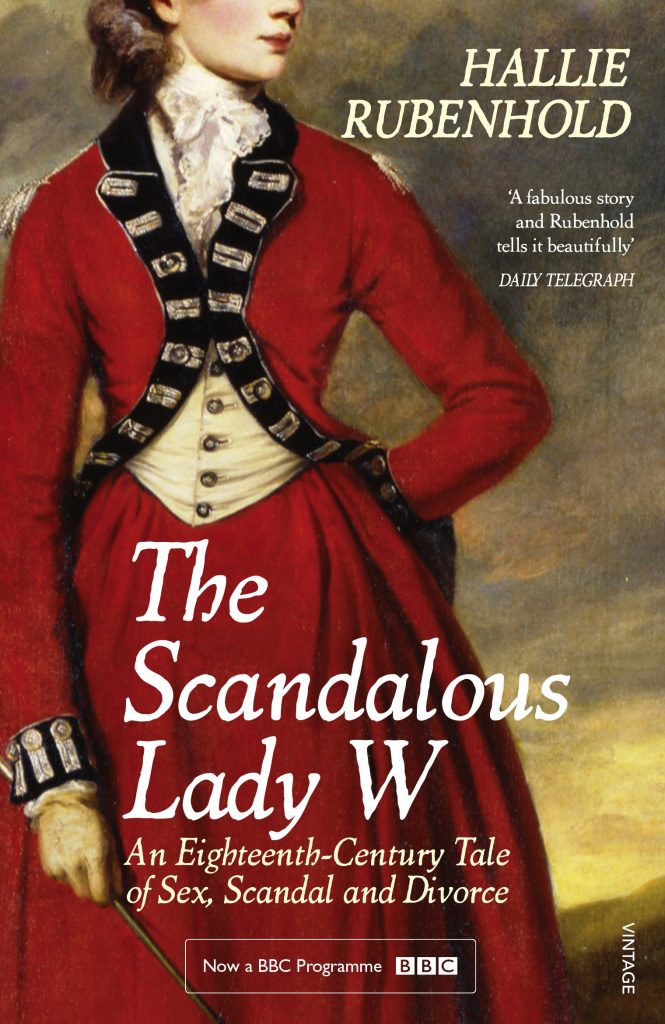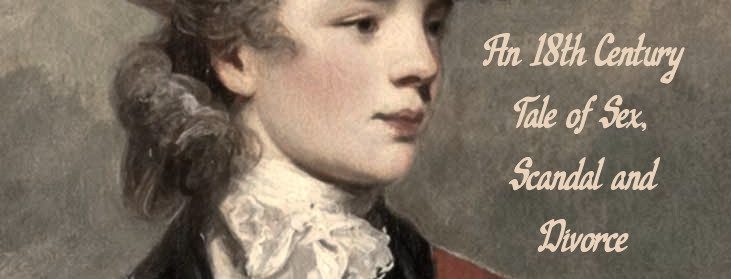You know when you’re reading a book and everything is happily coming together for the protagonists you’ve bonded with, when you realise that the fact there’s still 85 pages to go means something terrible is going to have to happen?
I had the opposite problem with this book. I was a third of the way into The Scandalous Lady W and loving it, but I couldn’t understand why- when the story had been so neatly wrapped up- there were still almost 200 pages to go. Then, of course, came the twist.
Seymour Dorothy Fleming was the youngest surviving daughter of Jane Coleman and John Fleming. Her father died when she was five, leaving his estate to be split between his daughters, and when she was twelve her mother remarried.1Seymore’s stepfather was Edwin Lacelles, a man who had made a considerable fortune by enslaving people and owning tens of thousands of acres of plantations in the West Indies. Edwin had been born in Barbados but was sent back to England in order to become a proper gentleman who could look after the English estates and bring honour to the family; it worked, within two generations the family were promoted to the aristocracy and the Lascelles still hold the Earldom of Harewood to this day. The family decamped from London to Yorkshire where Seymour discovered what was to be a lifelong love of dancing, horse riding and card games.
Richard Worsley was the son of an alcoholic who had no interest in maintaining the role society expected of a wealthy aristocrat, he refused to buy a house in London, had no desire to pursue political or military power; his wife, Lady Betty, who had been raised by people at the centre of literary and cultural circles found herself forced to retire from such activities before her husband’s ‘boorish’ behaviour would have her permanently banned. He was a man liked well enough by his friends and not really thought anything of by anybody else. When his father died in 1768 Richard’s guardians saw the opportunity to improve him, they took an interest into shaping him into more of a proper gentleman than his father had ever been and sent him to the continent for a Grand Tour of Europe. When he returned Edward Gibbon, the noted historian, wrote that “he seldom smiles, never laughs, drinks only water”.
At the time of their marriage in 1775 she was a 17-year-old with a fortune of £52,0002That’s more than £6.6 million in today’s money and he was a 24-year-old MP with ambitions. Within a year they had a son, having provided him with a fortune and an heir Richard appeared to feel his wife’s duties were complete, at which point he turned his attentions to amassing more political power with an eye to the family name being promoted into the upper circles of the British aristocracy. Seymour did not take well to feeling overlooked and in 1781 ran away with her lover, and husband’s friend, George Bissett.

Hallie does not parrot facts she tells a story, the amount of research that went into this book is astounding and she has written it so carefully. The way she builds our understanding of the times, casually explaining that in 1800 only 15% of the male population over the age of 21 had a vote, and those votes weren’t private- people could lose their jobs or houses if a family member voted the wrong way. In the hands of a lesser writer this would become a salacious, gossipy, bitchy story- the opportunities are plentiful to point and mock but that doesn’t happen. Hallie explores eighteenth century attitudes to power, the law, sexuality and personal relationships. It is a story based around a broken marriage, but the anger, the fear, the heartbreak that happened in the 1700s are the same things we see people dealing with today when someone decides they want something more from life than they can find with their current partner.
While the subtitle of this book is “An Eighteenth-Century Tale of Sex, Scandal and Divorce” that isn’t accurate to what happens, they do not go to divorce court. Richard Worsley did not sue his wife for divorce, he sued her lover for criminal conversation, the wonderful phrase the prudish legal system of the time had for adultery. Seymour had no voice in that court, in the eyes of the law she barely existed in her own right, she was her husband’s property, her own actions or feelings were almost irrelevant. The real question being asked was what value could be placed on the property of Richard Worsley, and how much had it been reduced by the interference of George Bissett.
It is still commonplace today for grievances to be played out publicly, and even in 1782 gossip columns were nothing new. But they had never had a case like this to sink their teeth into- and you will have to read the book yourself to find out what I’m talking about. Hallie isn’t shy about addressing the sexual predilections of any of the main players, it is notable that she handles them all sensitively. There are details that would make the editors of a tabloid salivate today. Here though the risks seem higher, and the injustices are more shocking. Even after the criminal trial has taken place, Seymour is shown to be a woman out of time who stands up again and against all who would have her be a meek, obedient object.


